Dr Jazmin Scarlett (President's Award)
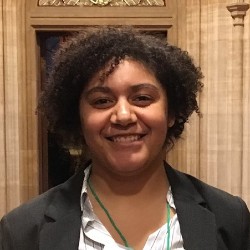 Dr Jazmin Scarlett is an outstanding early career volcanologist and a role model for the next generation of Earth scientists. Her research applies interdisciplinary innovation to important problems in volcanology, combining historical and social sciences with forensic geology. After a Masters in Volcanology and Geological Hazards at Lancaster University, she gained PhD at the University Hull focusing on the La Soufriere volcano, St Vincent – great timing Jazmin - and volcanic impacts on the island’s people, in particular marginalised populations. In 2018 she was awarded a Fellowship at Aarhus University, Denmark, and took up a teaching fellowship at Newcastle University, where her students nominated her for the ‘Outstanding Contribution to Student Feedback’ award. She has given numerous invited talks about her ground breaking research; most recently as a plenary panellist for the Volcanic and Magmatic Studies Group in 2020. A leader in outreach, equity, diversity, inclusion and accessibility initiatives, she has already made a significant impact, and works tirelessly to advocate and encourage those from underrepresented minorities to enter the Earth sciences. Congratulations Dr Jazmin Scarlett.
Dr Jazmin Scarlett is an outstanding early career volcanologist and a role model for the next generation of Earth scientists. Her research applies interdisciplinary innovation to important problems in volcanology, combining historical and social sciences with forensic geology. After a Masters in Volcanology and Geological Hazards at Lancaster University, she gained PhD at the University Hull focusing on the La Soufriere volcano, St Vincent – great timing Jazmin - and volcanic impacts on the island’s people, in particular marginalised populations. In 2018 she was awarded a Fellowship at Aarhus University, Denmark, and took up a teaching fellowship at Newcastle University, where her students nominated her for the ‘Outstanding Contribution to Student Feedback’ award. She has given numerous invited talks about her ground breaking research; most recently as a plenary panellist for the Volcanic and Magmatic Studies Group in 2020. A leader in outreach, equity, diversity, inclusion and accessibility initiatives, she has already made a significant impact, and works tirelessly to advocate and encourage those from underrepresented minorities to enter the Earth sciences. Congratulations Dr Jazmin Scarlett.
Dr Jazmin Scarlett replied:
Thank you. When I received the email, I was definitely very surprised and very honoured with this. I’d like to thank my supervisors, mentors, colleagues, friends and family for supporting me on my journey.
When you're in your research you sometimes don't actually think that you're making an impact - I just thought I was just doing science and so to be recognized for this, it’s definitely felt like I am doing the right thing in the research I'm doing. Even though my research is on hold at the moment, I would very much like to continue to keep doing this kind of research and to keep helping the people that need it and to inspire the next generation of Earth scientists. As we know, Earth sciences are going to be a very important and interesting discipline: future climate issues, but also just Earth systems in general, so I will continue to do my best to represent the discipline and to do good. Thank you.
Dr Finnigan Illsley-Kemp, Victoria University of Wellington (President's Award)
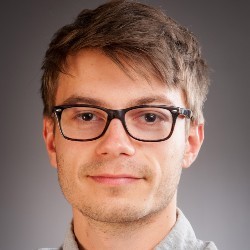 Dr Finnigan Illsley-Kemp is a well published and highly accomplished geophysicist whose skills in research, teaching, outreach and networking mark him out to be a leading scientist in years to come.
Dr Finnigan Illsley-Kemp is a well published and highly accomplished geophysicist whose skills in research, teaching, outreach and networking mark him out to be a leading scientist in years to come.
After undergraduate studies at Imperial College London he took a PhD in geophysics at the University of Southampton, which used data from a network of around 12 seismic stations in the Afar rift of East Africa to understand the cryptic processes of continental breakup. This research has led to a number of published papers, and his work has been highly recognised at conferences, including at the American Geophysics Union Fall meeting in 2017, where he was presented with the Outstanding Student Paper Award in Tectonophysics.
Since June 2018 he has been a Postdoctoral Fellow in Volcano Geodynamics at Victoria University of Wellington, New Zealand, researching the volcanoes of the Taupō Volcanic Zone. Congratulations Dr Finnigan Illsley-Kemp.
Dr Finnigan Illsley-Kemp replied:
Thank you, I'm honoured to receive this award from the Society and I have so many people to thank. I've been so lucky to have many inspiring and supportive supervisors and mentors through my research career beginning with my master supervisor Ian Bastow and then my PhD supervisors Derek Keir, Jon Bull, and Tom Gernon: all of them have endless enthusiasm, passion for research and most importantly for supervising students, something which I've definitely inherited. I'd also like to thank Martha Savage and Colin Wilson, for giving me the fantastic opportunity to come and research here in New Zealand. And finally, my family and partner for supporting me throughout, even when it means being on the other side of the world. Thank you.
Dr Fabian Wadsworth, University of Durham (William Smith Fund)
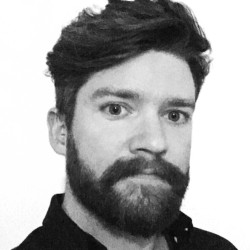 Dr Fabian Wadsworth’s research spans volcanology and physics, and has already made a significant impact on geoscience research and its application in the UK and internationally.
Dr Fabian Wadsworth’s research spans volcanology and physics, and has already made a significant impact on geoscience research and its application in the UK and internationally.
Since the start of his publishing career in 2013, he has produced 85 published research papers and book chapters – a tour de force by any standards. From his masters research on the field description of magmatic dykes in the Tongariro Volcanic Complex – where he showed how magma drained away at the end of eruptions – to his more recent comprehensive experimental and theoretical treatment of the permeability of magmas, he is clearly developing into a leader in volcanology.
Currently an Associate Professor at Durham University, he is co-founder and editor of the diamond open-access journal in volcanology: Volcania. His passion for research-led teaching and mentoring has led to his development of multi-level teaching tools, outreach materials, and his mentorship of new ECRs at PhD and MSc level working in a wide range of areas across geoscience. Congratulations Fabian Wadsworth.
Dr Fabian Wadsworth replied:
Thank you very much, I’m humbled by this honour. I'm especially honoured to receive this from The Geological Society, one of the foundation stones of our geoscience disciplines; a society who are custodians of our past and who can shape geoscience's role into the future. It's humbling to receive this award alongside the other awardees today, researchers whom I respect deeply, and many of whom are inspirations to me; so bravo to everyone. It's doubly humbling, as I reflect on William Smith’s achievements and look down the list of former William Smith fund recipients, who make for mighty company among whom to be counted.
I'm receiving this award on the backs of a great many collaborators and mentors, to whom I owe an immeasurable debt. It’s perhaps problematic to receive a personal award for work that's so inextricably linked with the magnificent talents of others so my thanks to all of those people. I would like to recognise my debt to the volcanological community as a whole; I take great joy from being a member of such a supportive and uplifting group of people.
Thank you President and to the Society for this honour.
Dr Andrew R Thomson, University College London (Murchison Fund)
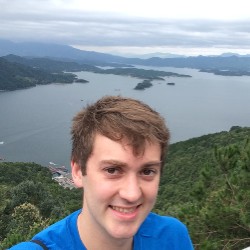 Dr Andrew R Thomson is making ground-breaking contributions to our understanding of the deep Earth. Following a PhD in experimental petrology at the University of Bristol he was awarded a NERC Independent Research Fellowship at University College London in 2017. His approach, linking together observations from natural samples with experiment, effectively bridges geology, petrology, geochemistry and mineral physics to address questions about the Earth’s interior. In particular, his work on deep diamond formation and its implications for carbon fluxes in the deep Earth system has been highly influential, whilst more recently he has published experiments on the physical properties of calcium perovskites which have led to a crucial re-interpretation of the composition of Earth’s deep mantle. An innovative, determined and gifted scientist, he has already built a strong international reputation and has been invited to participate in the review chapters of high-profile organisations such as the Deep Carbon Observatory. Congratulations Andrew Thomson.
Dr Andrew R Thomson is making ground-breaking contributions to our understanding of the deep Earth. Following a PhD in experimental petrology at the University of Bristol he was awarded a NERC Independent Research Fellowship at University College London in 2017. His approach, linking together observations from natural samples with experiment, effectively bridges geology, petrology, geochemistry and mineral physics to address questions about the Earth’s interior. In particular, his work on deep diamond formation and its implications for carbon fluxes in the deep Earth system has been highly influential, whilst more recently he has published experiments on the physical properties of calcium perovskites which have led to a crucial re-interpretation of the composition of Earth’s deep mantle. An innovative, determined and gifted scientist, he has already built a strong international reputation and has been invited to participate in the review chapters of high-profile organisations such as the Deep Carbon Observatory. Congratulations Andrew Thomson.
Dr Andrew R Thomson replied:
Mr President, the members of Awards Committee, the Council and to those that nominated me for the Murchison Fund – thank you! I am deeply honoured by the nomination, which I am absolutely delighted to accept.
When I went to university, I originally thought I would study Chemistry, and had very little idea what Geology was all about. It was at a freshers’ event the night before lectures started when I was somehow convinced to fill my empty subject slot with Geology. Since then, I have been consistently surprised and inspired by the subject and the plethora of wonderful people I have worked alongside. I do not have time to thank them all but there are a few people I would like to mention very briefly. Firstly, I would like to thank Prof Marie Edmonds, who guided me through countless supervisions and many days of field mapping during my undergraduate in Cambridge. I am greatly indebted to my PhD supervisors, Prof’s Mike Walter and Simon Kohn, who provided nothing but opportunities, inspiration and encouragement to me. Finally, I would like to thank my current colleagues at UCL, who have all provided endless support, encouragement, and mentorship throughout the last 6 years.
Thank you once again for this honour!
Dr Luke Parry, University of Oxford (Lyell Fund)
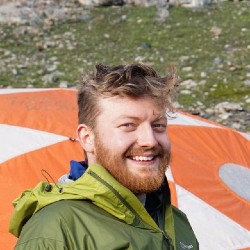 Dr Luke Parry is an outstanding researcher who has made important contributions to the field of palaeontology - in particular by demonstrating why fossils cannot be ignored by evolutionary biologists when constructing the Tree of Life. His research into early animal evolution links the analysis of exceptional and fragmentary fossils, and has improved our understanding of the nature of the Cambrian Explosion and the anatomy of long extinct stem groups.
Dr Luke Parry is an outstanding researcher who has made important contributions to the field of palaeontology - in particular by demonstrating why fossils cannot be ignored by evolutionary biologists when constructing the Tree of Life. His research into early animal evolution links the analysis of exceptional and fragmentary fossils, and has improved our understanding of the nature of the Cambrian Explosion and the anatomy of long extinct stem groups.
Whilst still researching his PhD, he secured a post-doctoral fellowship at the Royal Ontario Museum, followed by a two year fellowship at Yale University. His publications include contributions in Nature, Proceedings of the Royal Society B, Biology Letters and Nature Ecology and Evolution, and he has also authored two book chapters. Currently a Research and Teaching Fellow at the University of Oxford, he is foremost among young leaders in developing the prospective synthesis of disciplines between Earth sciences, biological science and chemistry. Congratulations Luke Parry.
Dr Luke Parry replied:
Thank you so much. I'd like to say a huge thanks to The Geological Society for giving me this award and it really is a great honour to see my name added to such a fantastic list of historical and recent recipients. I have a huge list of people to thank and I thought I'd start in chronological order.
I owe my success as a palaeontologist and my enthusiasm for the discipline principally to Martin Brasier and Matt Friedman at the University of Oxford who were essential in nurturing my interest in palaeo when I was an undergraduate and masters student. I'd also like to say a huge thank you to my PhD supervisors Jakob Vinther and Greg Edgecombe for their support during my PhD, and for all of their help and encouragement since then and beyond as well. I'd also like to say a big thank you to everybody who's mentored me since completing my PhD while I've been a postdoctoral scientist, in particular Derek Briggs and Roger Benson. I'd also like to say thanks to everybody who I've had the pleasure of collaborating with over the years, all the people who have made doing research so rewarding and so worthwhile.
Finally, I'd like to say a big thank you to my family, particularly for never questioning why I embarked on this endeavour to study extinct worms from the perspective of the fossil record. Thank you so much - it's a great honour.
Dr Emma Liu, University College London (Wollaston Fund)
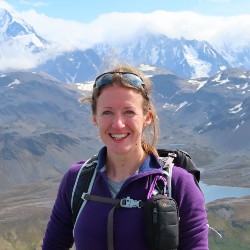 Since the award of her PhD in 2016, Dr Emma Liu has emerged as an accomplished and highly regarded volcanologist and petrologist on the international stage. In particular, she has made excellent contributions to our understanding of eruption dynamics and the development of novel volcano monitoring tools. Now a lecturer in Earth Sciences at University College London, she is rapidly gaining an international reputation for her careful research and fine leadership skills, reflected in frequent invitations to deliver keynote talks at international meetings. In 2017 she was the recipient of a Leverhulme Fellowship to research volcanic metal degassing, and in 2018-2020, after winning a 215,000 dollar grant from the Sloan Foundation, she led the ‘ABOVE’ project, which brought together international groups to advance the use of unoccupied aerial vehicles in volcanology, and involved field campaigns to Papua New Guinea. She is currently funded by the Royal Society to develop miniaturised low-cost gas sensor networks that will be deployed at volcanoes using drones, and is on the trajectory to a stellar research career. Congratulations Emma Liu.
Since the award of her PhD in 2016, Dr Emma Liu has emerged as an accomplished and highly regarded volcanologist and petrologist on the international stage. In particular, she has made excellent contributions to our understanding of eruption dynamics and the development of novel volcano monitoring tools. Now a lecturer in Earth Sciences at University College London, she is rapidly gaining an international reputation for her careful research and fine leadership skills, reflected in frequent invitations to deliver keynote talks at international meetings. In 2017 she was the recipient of a Leverhulme Fellowship to research volcanic metal degassing, and in 2018-2020, after winning a 215,000 dollar grant from the Sloan Foundation, she led the ‘ABOVE’ project, which brought together international groups to advance the use of unoccupied aerial vehicles in volcanology, and involved field campaigns to Papua New Guinea. She is currently funded by the Royal Society to develop miniaturised low-cost gas sensor networks that will be deployed at volcanoes using drones, and is on the trajectory to a stellar research career. Congratulations Emma Liu.
Dr Emma Liu replied:
Thank you very much. It's an absolute honour to be receiving this award, and to be amongst such inspiring company. I'm immensely grateful to those who nominated me for this award. It certainly came as quite a surprise. I'd like to thank my mentors who have guided and navigated me through the rather turbulent world of early career research over the years. There are too many for me to thank but there are a couple of names who I would like to highlight, in particular, because this is a great opportunity to thank them: Kathy Cashman, Alison Rust, Marie Edmonds, Tom Richardson, Tamsin Mather and Alessandro Aiuppa.
As many of you who know me probably know, I enjoy my research hugely. I've been very fortunate; it has taken me to many corners of the world, to some of the most remote environments on Earth, and to meet and interact with local communities who live and work with volcanic hazards. I strongly believe that the most exciting research, however, comes from the collaborations that you make, and none of the achievements that were so very kindly described a moment ago would have been possible without my colleagues and friends who worked with me on these projects, and made them such a success. So, thank you to all of you, this is for everyone.
Dr Caroline E Gill, Shell (Aberconway Medal)
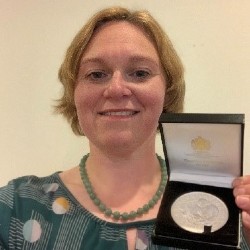 Dr Caroline Gill is a highly respected production geologist and leader, with a broad reach across industry and academia. Her career is focused on maximising the economic recovery of the North Sea oil and gas resources, and she is currently the subsurface lead on the Arran field, bringing together a cross disciplinary team to deliver the development of a new CNS field through horizontal drilling.
Dr Caroline Gill is a highly respected production geologist and leader, with a broad reach across industry and academia. Her career is focused on maximising the economic recovery of the North Sea oil and gas resources, and she is currently the subsurface lead on the Arran field, bringing together a cross disciplinary team to deliver the development of a new CNS field through horizontal drilling.
As a senior geologist working on the complex, Clair field West of Shetlands, she was respected and recognised for her technical and strategic contributions, and she currently holds a designated production geology ‘Technical Authority’ role in Shell, reviewing and assuring the work of other geologists across the business. She is praised and recognised for promoting geoscience as a career and mentoring early career geoscientists, emphasising their role and responsibilities as custodians of our energy resources. As well as successfully nominating several young geoscientists for industry awards, she has organised two Petroleum Geoscience Collaboration Showcase events within PETEX in 2016 and 2018, showcasing the work of post graduate and postdoctoral researchers. An inspiring ambassador for inclusivity and diversity, she was the recipient of the prestigious Professional Woman of the Future Award in 2012, and continues to serve in numerous high-level positions in a number of professional societies, including as the current Chair of the Geological Society’s Energy Group. Warmest congratulations Caroline Gill.
Dr Caroline Gill replied:
President, Fellows, Ladies and Gentlemen, I feel immensely honoured and humbled to accept the Aberconway Medal in recognition of my contribution to applied and economic geoscience. It was a wonderful surprise and caused me to reflect, as I often do, on what a privilege it is to do something I enjoy so much for a living.
I have lived my life by the mantra ‘take every opportunity’ and my introduction to Geoscience as a part 1A natural science student and subsequently to the Energy Industry as an MSci student were two of those opportunities which I can now reflect back on with wonderful memories. The Geological Society of London has provided many opportunities from a forum in which to present my work as a petrified undergraduate student to welcoming me to committee meetings whilst on maternity leave with a tiny baby in tow. I would like to take this opportunity as I speak to you to appeal to you all to be constantly looking for opportunities – not just for yourself but for those you can share with others.
I am particularly proud of our President’s words with respect to promoting Geoscience as a career and coaching and mentoring early career geoscientists. When you are as enthusiastic about rocks as I am, it is not hard to share that enthusiasm with others be they school children, university students or colleagues. I hugely enjoy sharing Geoscience and my experience of working in the area with others be it in the classroom, the board room or on a mountain top, in a kayak or on a bike are all positive, fun memories.
Whilst I am a proud badge carrying rock lover, Geoscience would be nothing without the wonderful people I have learned from, coached, worked with, mapped faults and drunk gin with. A massive thank you to my nominees, who know me so well, and to all those who have contributed to the recognition I am receiving today. You all know who you are and the contribution you continue to make. Thank you.
Prof Marie Edmonds, University of Cambridge (Bigsby Medal)
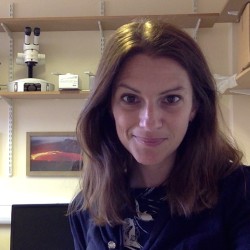
Professor Marie Edmonds has significantly advanced our understanding of volcanic systems, and is a widely recognised leader in the volcanology and deep carbon communities. Currently Chair in Volcanology and Petrology at the University of Cambridge, she is a leading expert on the cycling of volatiles between the atmosphere and the mantle, and the role they play in melting, magma genesis, storage, transport, eruption style and climate modulation. After PhD work at Cambridge focusing on the Soufriere Hills Volcano, Montserrat, she undertook a prestigious USGS Mendenhall Fellowship at the Hawaiian Volcano observatory, where she evaluated the complete degassing history of basaltic melts. By 2011, she was recognised as a world leader in studies of magmatic volatiles. More recently, she has expanded her work on the role of magmatic volatiles in modulating eruptive processes, and has engaged with the Deep Carbon Observatory with the goal of constraining magmatic contributions to the carbon cycle.
A fantastic communicator and advocate for geoscience, she has served the community within the UK and internationally, undertaking numerous leadership roles including Secretary of Science for the Geological Society from 2014 to 2018, Petrology Secretary of the American Geophysical Union from 2016-2018 and a position on the Deep Carbon Observatory’s Executive Committee. Her numerous awards include the Thermo-Fisher Scientific Volcanic and Magmatic Studies Group Award in 2019, and the Wager Medal from the International Association of Volcanology and Chemistry of the Earth’s Interior. Congratulations Prof Marie Edmonds.
Prof Marie Edmonds replied:
Thank you very much Mr. President. I am truly honoured to receive the Bigsby Medal from The Geological Society and I must say I'm relieved to know that, to quote from the award description: "I'm not too old for further work, and not too young to have done much." !
The geociences have never been more relevant to society: we face enormous challenges in climate, energy, hazards and resources. The study of Earth Sciences, that enormous bewildering and fascinating field that interfaces with so many different disciplines, is really
central to tackling these challenges. I count myself extremely fortunate to be part of this enterprise and I'm very grateful to the many outstanding colleagues who've mentored and inspired me along the way including, just to mention a few, David Pyle, Clive Oppenheimer, Steve Sparks, Bruce Houghton, Yan Lavallee , Kathy Cashman, Mike Poland, Cin-Ty Lee, Don Dingwell and Bob Hazen, each of these in their own ways, opened my eyes to new fields, new techniques and, importantly, new ways to interact respectfully and productively with others. I'd like to thank my nominators, my colleagues, both at Cambridge and further afield, my PhD students of course, and last but not least my family who provide steadfast support always, thank you.
Dr Sheila Peacock (Distinguished Service Award)
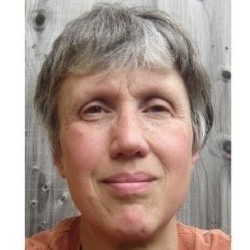 Dr Sheila Peacock’s contribution to the field and community of UK geophysics spans more than three decades. During this time, she has been the driving force behind the British Geophysical Association and acted in multiple trustee roles within learned societies, devoting her time freely and enthusiastically and ensuring that the geophysics community in the UK remains strong and supported. Her academic career began with a PhD at the University of Edinburgh, researching seismic anisotropy and shear-wave splitting. During her subsequent research career, she continued to use the effect of cracks and pores on seismic waves to investigate rock properties and tectonic processes.
Dr Sheila Peacock’s contribution to the field and community of UK geophysics spans more than three decades. During this time, she has been the driving force behind the British Geophysical Association and acted in multiple trustee roles within learned societies, devoting her time freely and enthusiastically and ensuring that the geophysics community in the UK remains strong and supported. Her academic career began with a PhD at the University of Edinburgh, researching seismic anisotropy and shear-wave splitting. During her subsequent research career, she continued to use the effect of cracks and pores on seismic waves to investigate rock properties and tectonic processes.
After leaving academia in 2005 to join AWE Blacknest as a senior seismologist, she has remained a stalwart supporter of the academic community, devoting her time to the promotion of geophysics, to encouraging the next generation of students, and to championing outreach, diversity, equality and inclusivity efforts within the geosciences. At the British Geophysical Association, she has worked tirelessly for more than two decades, including acting as Secretary between 2007 and 2010. She has served in multiple trustee roles on the Councils of both the Geological Society and the Royal Astronomical Society, and has sat on many of their sub-committees. She is, put simply, “the glue that holds the geophysics community together”, and this award is presented with our sincere thanks to Dr Sheila Peacock.
Dr Sheila Peacock replied:
President, Council Members and Fellows,
Thank you very much for bestowing this award on me - I am overawed to have received any kind of award - and thank you to my nominators, whoever you are. As awards officer of the British Geophysical Association I appreciate the effort required to draw up a nomination.
My first reaction was to turn the award down, on the grounds that I have done nothing to mitigate the coronavirus disaster that has overtaken our subject area and particularly our universities, schools and places of work. It was only when Mike Daly told me that the nomination deadline was so early that no-one could have been nominated for coronavirus-related service that I agreed to accept it. I urge those listening to nominate for next year's Service Award one of the heroes of the pandemic, people who have developed and shared incredible online resources, found ways to do fieldwork, meetings, and teaching safely and productively, written and rewritten risk assessments, and kept their end up while things are low.
Dr Anjana Khatwa, Wessex Museums (RH Worth Award)
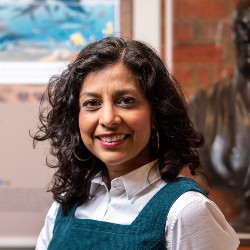 Dr Anjana Khatwa is a passionate and tireless advocate for the geosciences, with a focus on engaging diverse and under-served audiences.
Dr Anjana Khatwa is a passionate and tireless advocate for the geosciences, with a focus on engaging diverse and under-served audiences.
After doctoral studies at the University of Southampton and research positions in the UK and the USA, she spent fifteen years developing a strategic learning programme for the Jurassic Coast, creating award winning resources and individually training over five thousand teachers around the world. Working with UNESCO, she has supported teaching and development in St Lucia and Taiwan, using Earth sciences to celebrate natural heritage and culture. During the London Olympic Games, she created the Big Jurassic Classroom, linking the Olympic Values to those of the Jurassic Coast World Heritage Site. The legacy of this programme was developed in partnership with the Primary Science Teaching Trust and is now a national programme delivering Earth Science learning in primary schools across the UK.
A talented science communicator, she has appeared as an expert and presenter in major TV series such as BBC Beach Live, BBC Fossil Detectives and the Discovery Channel’s How the Earth was Made. During the coronavirus lockdowns she has launched her own YouTube channel, with innovative content for Key Stage Two home learning. Her innovation and creativity in interpreting Earth sciences, particularly for under-served communities, is unique, and displays an extraordinary commitment to making the Earth sciences accessible for everyone. Congratulations and thanks Dr Anjana Khatwa.
Dr Anjana Khatwa replied:
Thank you so much, and I'd like to take this opportunity to thank The Geological Society of London for this award. I'd like to thank those who nominated me and have supported me throughout my career. It really is a huge honour to receive this and when I opened that award scroll, I can't tell you the weight of history that I felt in that thin piece of paper. To be with Jazmin Scarlett, you know due to some research done by Dr Sam Giles, one of the first women of colour to receive an award from such an esteemed institution, I was really quite taken aback.
And, of course, there'll be lots of people in my career that I should thank, notably Richard Edmonds who I worked with the Jurassic Coast team, Tim Badman there as well and Professor Denys Brunsden, I stand on the shoulders of these giants who showed me the magic of storytelling. I also learned so many skills, and ways to think differently about geology from artists, and here I call upon Lorna Rees and Darrell Wakelam who were instrumental in shifting the way I looked at the natural world. My friends, my family, the organizations that have platformed and championed me, like Mary Anning Rocks, they are all part of this success story, and I’d like to thank everybody that played a part in that journey. Thank you so much.
Prof Christopher Jackson, University of Manchester (Coke Medal)
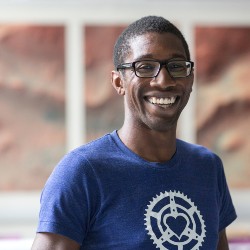 Professor Chris Jackson is an internationally recognised expert in the structure and evolution of sedimentary basins, specialising in the interpretation of seismic reflection data. Currently Chair in Sustainable Geoscience at Manchester University, his impressive publication record and notable research has won him numerous awards, including the Geological Society of America’s Thompson Distinguished Lecturer Award in 2016, the AAPG’s William E. Pratt Memorial Award in 2015, and this Society’s Bigsby Medal in 2013.
Professor Chris Jackson is an internationally recognised expert in the structure and evolution of sedimentary basins, specialising in the interpretation of seismic reflection data. Currently Chair in Sustainable Geoscience at Manchester University, his impressive publication record and notable research has won him numerous awards, including the Geological Society of America’s Thompson Distinguished Lecturer Award in 2016, the AAPG’s William E. Pratt Memorial Award in 2015, and this Society’s Bigsby Medal in 2013.
A dedicated and skilled communicator of his science, he has delivered numerous presentations at science festivals and other public engagement events. In 2017, he appeared in BBC Two’s ‘Expedition Volcano’, and in 2019 he delivered the opening talk of the Royal Institution Christmas Lecture series, ‘Planet Earth: A User’s Guide.’
He is a tireless and passionate advocate for equality, diversity, and inclusion within the geosciences, both in the UK and globally. In 2020 alone, he was involved in activities aiming to make geoscience fieldwork more inclusive, with a specific focus on Black and LGBTQ+ geoscientists, and in efforts to make the recruitment and selection of PhD students more equitable. With an increasing media presence, he has used his platform to advocate for change, supported by direct positive action; engaging directly with schools and young people, co-authoring best practice guides, and calling for change from academic institutions and scientific societies. His vital contributions to the community make him a role model, not just within geoscience, but more broadly across science and the UK public. Congratulations Prof Christopher Jackson.
Prof Christopher Jackson replied:
I would like to begin my reply by warmly thanking the Geological Society for awarding me one of this year’s Coke Medals. It’s really rather fetching!
I would next like to remind everyone that although awards are given to individuals, they really recognise the labours of many. Close to home, this is my family; my wife, Vicki, and my children, Olive, Hazel, and Nora, and my Mum, on whose patience and support I so keenly depend. And at work, my second family, which includes the many talented students and colleagues I have been lucky enough to work with over the years.
Turning now to the Coke Medal itself, which, as you just heard, is awarded for, and I paraphrase, “contributions to science…resulting in benefits to the community”.
During my career and, in particular, over the last year, it has become clear that because of discrimination, exploitation, and conscious and unconscious bias, and despite being central to tackling many of the socio-environmental challenges facing us in the next few decades, geoscience remains one of the least diverse STEM, or for that matter, non-STEM disciplines. Numerous barriers limit the participation and progress of women, racial and ethnic minorities, those with disabilities, and those identifying as being part of the LGBTQ+ community, amongst many others. My efforts are thus centred on a desire to make geoscience and society both equitable and inclusive.
But even those who are “tireless” ultimately tire, thus it is crucial that everyone, learned societies such as the Geological Society included, work to increase diversity and inclusivity. Related to precisely this point, it is notable that all of the undoubtedly worthy recipients of this years ‘career achievement’ awards present as men, whereas three women and one man, me, are the recipients of the ‘service and outreach’ awards. It is also notable that two of us also present as members of racial and ethnic minority groups. Thus, to collectively stop ourselves from tiring, we must share the load. We must be prepared to make mistakes and run the risk of upsetting those who are accustomed to both power and privilege. And we must look very hard at the decisions we are making, and to be aware of who is and who is not in the room, be that virtual or otherwise.
In closing, I would like to restate my thanks to the Geological Society for awarding me one of the Coke Medals for 2021. Rightly or wrongly, this award affords me some privilege that, I hope, I continue to put to good use during the rest of my career.
Dr Helen Reeves, Jacobs (Coke Medal)
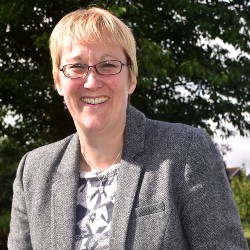 Dr Helen Reeves is an internationally recognised and highly respected engineering geologist, specialising in engineering geological characterisation and geohazard assessment. With over 30 publications, policy review documents and industry commissioned reports, she has provided expert advice to both the UK and Scottish governments as well as a number of international bodies.
Dr Helen Reeves is an internationally recognised and highly respected engineering geologist, specialising in engineering geological characterisation and geohazard assessment. With over 30 publications, policy review documents and industry commissioned reports, she has provided expert advice to both the UK and Scottish governments as well as a number of international bodies.
Following postgraduate studies at Durham University, she spent 18 years at the British geological Survey, 12 of which were spent as Science Director for Engineering Geology and Infrastructure. As part of this role, she led the £3m annual NERC/BGS Engineering Geology Research programme, investigating the processes and spatial distribution of shallow geohazards in the UK, the geotechnical and geophysical properties of the UK land mass and urban geoscience challenges in cities. In June 2020, she took up a post as Senior Associate Director for Engineering Geology with the US consulting company Jacobs.
Her extensive work as an expert adviser includes membership of SAGE during the 2013-2014 winter storms, as well as responses to international events such as the May 2013 Balkan floods and the 2010 Kolontár tailings dam disaster in Hungary. Much in demand as a speaker, she has delivered over 50 presentations and more than 20 invited keynote talks to professional and industry bodies. She is the recipient of the 2015 Geological Society Engineering Group Award, and the Yorkshire Geological Society’s 2017 Bisat Award.” Congratulations Dr Helen Reeves.
Dr Helen Reeves replied:
Mr President, Council, Fellows and my nominators of this award, I say thank you. I was profoundly humbled to have been nominated by my colleagues and peers. It was a lovely, welcome surprise on Christmas Eve when I received it.
Throughout my career to date and in my current position within Jacobs I have been extremely fortunate to have been mentored, worked with and collaborated with some of the most inspiring, innovative, creative geologists, engineering geologists, engineers, environmental scientists and social scientists across industry, academia, and government organisations. I thank all these people that have helped me to shape my career. These relationships have enabled me to work across professional boundaries and with different organizational remits to meet societal challenges. It has also led me to develop a strong passion for working and collaborating with multidisciplinary and interdisciplinary engineering, science and social science teams to address engineering and societal challenges around natural hazards and urban sustainability. These experiences, have importantly given me the opportunity and experiences to ensure that this is communicated appropriately and effectively to all the stakeholders and interested parties.
These collaborations and interactions have very much led to the development of my strong set of personal values surrounding professionalism, respect, and my great passion and enthusiasm for geology and engineering geology.
I would just like to say a final important thank you, particularly to my family: my Mum and Dad, but most importantly, my husband, Iain. Iain has been along on this journey with me throughout all of my professional career and has helped shape my successes, and also kept me sane. Thank you for that. Again thank you to The Geological Society for this award which is very welcome.
Prof Kenneth McCaffrey, University of Durham (Dewey Medal)
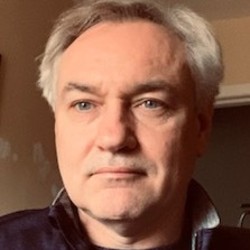
Professor Kenneth McCaffrey is a leading field-oriented structural geologist, who has been at the forefront of innovations, applications and teaching of new technologies in Earth modelling based on field data for more than twenty years.
His PhD research at Durham University involved detailed structural mapping of the granites of the Ox Mountains in Ireland; work which led to his receipt of the Ramsay Medal of the Geological Society’s Tectonic Studies Group. He was subsequently awarded the Society’s Murchison Fund for ‘considerable and innovative contribution to granite emplacement studies.’ Field studies continued to underpin his research, and he has gone on to develop innovative teaching and research in geospatial modelling and digital fieldwork technologies. Appointed Professor of Structural Geology at Durham University in 2013, he is the founding Director of the Terrestrial Laser Scanning Facility at Durham which specialises in high resolution imaging of geological outcrops and also a Director of Geospatial Research Ltd, a Durham spin-out company that provides digital fieldwork services.
His novel approach to fieldwork, including many applications of digital mapping, has been communicated via multiple invited and keynote talks at prestigious meetings, and he is a dedicated teacher, with many of his students going on to highly successful careers in academia and industry. His current projects, which include work on the interaction of earthquake-prone faults and the characterization of fractures in basement rocks of sedimentary basins, exemplify the high-impact nature of his research. Congratulations Prof Ken McCaffrey.
Prof Kenneth McCaffrey replied:
Thank you, I'm very honoured to accept the Dewey medal from The Geological Society, named after Professor John Dewey who was a great inspiration for me during my PhD.
My experience of fieldwork as an undergrad was that it could be very challenging, but very enjoyable and gave a unique insight into the sub-surface structure of the earth and its geological processes. So I've tried to maintain that in my teaching to our undergraduates by emphasizing traditional field skills, but also bringing in new methods digital methods such as GIS mapping, remote sensing and virtual outcrop technology things that are very much at the fore at the moment, and were very useful during this pandemic of course.
I want to acknowledge my mentors and collaborators, without whom none of this would be possible. My PhD supervisor Donny Hutton was very inspiring, the late Dave Johnson in Dublin and John Grocott, who introduced me to the joys and complexity of fieldwork in Greenland. Gerald Roberts, introduced me to the Apennines where I learned about active tectonic systems and got to work with the late Patience Colley and Laura Gregory. And it's been great pleasure working with Bob Holdsworth and Richard Jones at Durham and the many, many PhD students and postdocs that we've supervised together over the last few years: I've learned a lot from them all, and I'm very grateful.
Finally, to my family, thanks for all the support, especially during absences which traditional fieldwork entails, I'm very grateful. Thank you.
Prof Sanjeev Gupta, Imperial College London (Prestwich Medal)
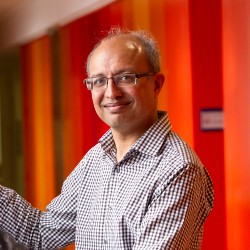 Professor Sanjeev Gupta is an Earth and planetary scientist who has gained an international reputation by applying his terrestrial field expertise to Mars science. Currently Professor of Earth Sciences at Imperial College London, his early research linked basin sedimentation and tectonics, and led to a number of high profile cross disciplinary projects, including work to establish that catastrophic late quaternary megafloods made Britain an island – a conclusion with huge impact for fields as diverse as palaeobotany, archaeology, anthropology and glaciology.
Professor Sanjeev Gupta is an Earth and planetary scientist who has gained an international reputation by applying his terrestrial field expertise to Mars science. Currently Professor of Earth Sciences at Imperial College London, his early research linked basin sedimentation and tectonics, and led to a number of high profile cross disciplinary projects, including work to establish that catastrophic late quaternary megafloods made Britain an island – a conclusion with huge impact for fields as diverse as palaeobotany, archaeology, anthropology and glaciology.
When asked to study early images from the European Space Agency Mars Express spacecraft, he recognised features similar to the English Channel morphologies, and began applying his expertise to the study of Martian sedimentary processes. Over the last decade he has become the UK’s leading Mars geologist, and is now a vital member of several European and US Mars missions and a sought-after collaborator. In particular, his contributions to the NASA Curiosity Rover mission have helped develop new paradigms for Mars’ environmental history and habitability.
A talented and passionate communicator, his work has been widely featured in the media and he is much in demand as a speaker at science festivals and public engagement events. At Imperial, he recently led the creation of the Earth and Planetary Science degree, a testament to the popularity and high profile of his work. He's also a keen supportor of the Society, and the force behind an upcoming exhibition, Spacescapes, to be held in the Burlington House Courtyard in August and September.
Prof Sanjeev Gupta replied:
Thank you Mr President. Thanks for your generous overstated words and I feel quite embarrassed to receive this award as I feel I'm very lucky in doing such a stimulating exciting job, and what would one want more in a career than that. My interest in geology was quite strange probably for an Indian child of immigrant parents to be interested in geology, it came from accompanying my father, who was a biology teacher, on field trips to Dorset and Cornwall as a child. I wasn't particularly interested in all the living organisms they scooped out of rock pools but became intrigued by pebbles rocks and fossilized creatures that abounded.
I went to Oxford, and I was fortunate to have as my undergraduate supervisor, Harold Reading and I could have followed the path of either hating or loving sedimentology, of course I grew to love sedimentology. In tutorials, Harold basically threw us in at the deep end and we'd get several books to read for a single tutorial and I just loved that deep reading and flourished in tutorials, though my lecture attendance was far from exemplary! Instead I went on a geological expedition to the rain forest in Borneo - surprise, surprise there weren't many rocks but there were lots of helicopters, boats, leeches and a night in jail, which provided entertainment and led to my excitement with travel.
Science is really a collaborative enterprise, and you don't do it alone. I've been very, very fortunate to work with many generous, lovely people, Philip Allen who very sadly died earlier this year was a truly inspiring PhD supervisor. I have been fortunate to work with some brilliant scientists like Patience Cowie, John Underhill, Nancy D___?, Alex Densmore and Chris P__?, learning about tectonics in past and present landscapes. However, perhaps my best adventure has been exploring the unknown close to home, the English Channel, with my absolutely wonderful geophysicist colleague, Jenny Collier, doing some completely unexpected research; it's surprising what you can do when you don't get funded.
More recently, as you know my field geological activities are rather virtual, but it's an immense privilege to be a small, small part of large space missions, exploring the geology of distant planets. It’s wonderful to be able to impart our field geology expertise to these new ventures and something that the younger me, could never have imagined. So I'm grateful for another scientific community for having welcomed me, even if I can be a tad opinionated. I'd like to thank The Geological Society with for the Prestwich Medal and thank my collaborators, students, friends and family for being part of enriching my explorations. Thank you.
Dr Philip Christie (William Smith Medal)
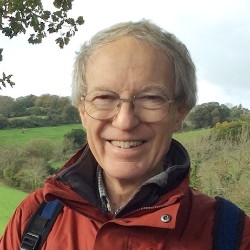 Dr Philip Christie is an influential and exceptional geophysicist whose work has made important scientific and technical contributions to the oil and gas industry and to academia.
Dr Philip Christie is an influential and exceptional geophysicist whose work has made important scientific and technical contributions to the oil and gas industry and to academia.
After undergraduate studies in theoretical physics, he undertook PhD research supervised by Drummond Matthews at the University of Cambridge, focusing on sedimentary basin
formation and testing the then new model of extensional basin formation proposed by Dan McKenzie. The results of this research, completed in 1979, were published in Nature and the Journal of Geophysical Research, and showed how basin subsidence by stretching could be recognised from seismic measurements and constrained by sediment decompaction and subsidence curves. This work has had a major and lasting impact on sedimentary basin subsidence analysis, underpinning almost all basin analysis and petroleum systems modelling carried out by industry today.
After post-doctoral research at Cambridge, his focus turned towards exploration seismology with Schlumberger, where he has made many important scientific and technical contributions. In the late 1990s, he worked with BP on Foinaven Field reservoir monitoring using pioneering time-lapse seismic techniques, and more recently he has been co-principal investigator on the Liverpool-Cambridge University iSIMM (integrated Seismic Imaging & Modelling of Margins) project. iSIMM was a landmark integrated seismic and geodynamics research project with a lasting legacy; not least because of Phil Christie’s intellectual and practical involvement.
He has made an enormous contribution to both industrial and academic geoscience, not only through his scientific work but through his generous volunteering of his time. He served as Chief Editor of Petroleum Geoscience from 2009-2018, was President of the European Association of Geoscientists and Engineers (EAGE) from 2008-9, and has donated his time to numerous committees, advisory boards and industry panels. In 2018, he was presented with EAGE’s Conrad Schlumberger Award for geophysics, for outstanding contributions to the scientific and technical advancement of the geosciences. Congratulations Dr Phil Christie.
Dr Philip Christie replied:
Thank you, Mr President, for those very kind words. When I received the email offering me the William Smith medal twin emotions of sheer delight and absolute amazement competed for dominance in my head. Eventually, after many ‘pinch-me’ moments, the dopamine rush won through, all the more so since a medal named after the ‘Father of English Geology’ had been awarded to a geophysicist.
After my first degree, I joined Schlumberger as a Wireline engineer in west Africa and received a grounding in formation evaluation and rock physics. I had decided that earth science was to be my calling, so I applied to Cambridge to do a PhD with Drum Matthews into North Sea epeirogeny. I was logging a Texaco well in the middle of the Sahara Desert when I heard I’d been accepted by Cambridge, and the Texaco well-site geologist, a Swiss Alpinist, advised me that I had better learn some geology quickly. How right he was. I spent my first several months as Drum’s student cutting my teeth on Sir Peter Kent’s papers on the North Sea basin, armed with my trusty geological dictionary in one hand and a wire-wrapping gun in the other. The rest, as they say, is history.
If this citation names me as a serial volunteer, it is only because my own career has benefited enormously from the wonderful support, advice and encouragement from so many others, too numerous to name individually. Their time spent with me has motivated me to return the favour, but I quickly found that such interactions generated their own reward with the stimulation of fresh ideas, collaborations and, most importantly, friendships. However, I simply must acknowledge the unending patience of my wife Judith, from helping me to wire-wrap my sea-bottom seismometers, to bringing me late-night cups of coffee while editing papers for Petroleum Geoscience.
Again, Mr President, I thank you and the Geological Society for this fantastic award.
Professor Graham Pearson (Murchison Medal)
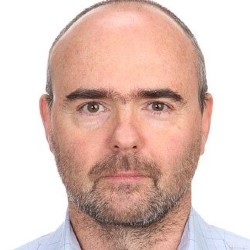 Professor Graham Pearson is widely recognised as a leading authority on the study of the deep Earth and planetary materials. His research has primarily focused on mantle petrology (kimberlites, xenoliths and diamonds) and has resulted in authorship of 268 papers and 11 book chapters and reviews, as well as numerous major scientific awards.
Professor Graham Pearson is widely recognised as a leading authority on the study of the deep Earth and planetary materials. His research has primarily focused on mantle petrology (kimberlites, xenoliths and diamonds) and has resulted in authorship of 268 papers and 11 book chapters and reviews, as well as numerous major scientific awards.
After PhD studies at Leeds University, he undertook postdoctoral research at the Carnegie Institution of Washington and the Open University before becoming Professor of Geochemistry at Durham University, becoming Head of Department in 2010. He subsequently took up the prestigious post of Canada Excellence Research Chair at the University of Alberta, where he rapidly established state-of-the-art analytical facilities and a large research group. He is currently Director of the Diamond Exploration and Research Training School at the University of Alberta.
A highly perceptive geoscientist, he has a unique ability to address problems that have a broad range of scientific implications. In the mid-1990s, he pioneered the use of rhenium-osmium isotopes in Earth science, using this technique to generate the first robust ages of formation of Earth’s lithospheric mantle and showing that the cretonic cores of the world’s continents all formed between 2.5 and 3.5 Ga. His discovery of inclusions of ringwoodite in diamond has been one of the most important discoveries in Earth sciences in the last 50 years, with major implications for how we interpret the inner workings of our planet.
An inspirational supervisor and mentor, he has enhanced the career pathways of more than 55 PhD students and 30 postdoctoral researchers. He has served on numerous international committees and editorial boards, including, from 2009 – 2014, serving as an Expert Committee Member on an international body established to counter the trade in ‘conflict diamonds’ for the White House Office of Science & Technology. I'm delighted to award you the Murchison Medal Prof Graham Pearson.
Prof Graham Pearson replied:
Thanks, Mr President. Well, it's a great honour to be nominated for any award from the original Geological Society, let alone, receive one of their medals and so I really must thank the generosity of my nominators for dedicating their time and enthusiasm, and for seeing some value in the work that me and my group do. I would really have loved to be on-site to receive the award as I'm sure would many others that are here today. I have really fond memories of visiting Burlington House as an undergraduate in the lovely library that you see behind us here and being allowed to examine some of the original Peach and Horne maps prior to my undergraduate mapping thesis. I attended my first President’s Day in 1986 as an undergraduate student listening to talks from the medal recipients and never did I imagine for a moment that I would be giving my own medal lecture.
The work this award is based on is of course the product of many people's input, not just mine, and it's important, as many have, to acknowledge all the input from the students and postdocs and colleagues that have gone into some of the results that I'll talk about later today. They really make possible what no one person can achieve on their own. I particularly want to thank the support of my lab managers and technical staff over the years, people that rarely get mentioned in these events, especially Geoff Nowell and Chris Ottley at Durham, and latterly Sarah Woodland, Jan Lou and Chiranjeeb Sarkar at Edmonton: without them, there wouldn't be any data, to talk about.
Few of us can get anywhere without excellent mentors and the few words available here, just don't do justice to the mentors that I've had, or the influence they have had on me. I've been lucky enough to have been educated and influenced along the way by many people. Being from a coal mining town in West Yorkshire, I thought I wanted to be a mining geologist when I went to Imperial College – well, actually I wanted to play cricket for Yorkshire but that didn't quite work out. The plan to be a mining geologist soon changed in large part due to inspiring teaching by Bob Thompson and other faculty at Imperial at the time.
Another stroke of luck was being turned down for a PhD at Oxford, which actually then prodded me to accept a PhD in Leeds, for what turned out to be an amazing project with two great supervisors Peter Nixon and Gareth Davies that I learned so much from. Also other faculty at Leeds, especially Marge Wilson and Bob Cliff were great influences. It was Peter’s infectious enthusiasm that drew me into mantle peridotites, kimberlites and diamonds, and I've never looked back from that. Although I've since developed a few arcane other interests such as looking at the efficacy of metallo-drugs using the same analytical techniques that we use for analysing rocks.
I wouldn't have got a permanent job without being lucky enough to be mentored by giants in the field like Joe Boyd, Rick Carlson, Steven Shirey at Carnegie, and latterly Chris Hawkesworth and Nick Rogers at Open University. Colleagues at the University of Alberta have been a massive stimulus, Thomas Stachel especially, and Jeff Harris for an unceasing supply of diamonds.
And lastly, thanks for the encouragement from my parents and the constant support from my wife over the last 30 years, Sam, without whom I wouldn't have got very far, and I wouldn't have enjoyed it nearly so much. Thanks again for the honour.
Prof Nicholas Jeremiah White, University of Cambridge (Lyell Medal)
.jpg?h=250&w=250&la=en) Professor Nicholas White has made fundamental and far-reaching contributions to our understanding of deep Earth mantle geodynamics- the importance of which would be instantly recognisable to this medal's namesake, Charles Lyell.
Professor Nicholas White has made fundamental and far-reaching contributions to our understanding of deep Earth mantle geodynamics- the importance of which would be instantly recognisable to this medal's namesake, Charles Lyell.
Deep flow within the mantle generates long-wavelength uplift or subsidence of the Earth's surface- termed dynamic topography. With his research group at the Bullard Laboratories, Cambridge, Professor White has developed stratigraphic and geophysical techniques, which are used to measure, and globally map, mantle dynamic topography, providing real world evidence for previously untested and uncalibrated predictions based upon mantle convection models. The results of this work have been fundamental and far reaching.
Following undergraduate studies at the Trinity College, University of Dublin, he took a PhD at Cambridge University, where he has spent the majority of his research career, being appointed Professor of Cymatogeny in 2012. The breadth of his research and contributions to science over this period is substantial- as well as illuminating our understanding of dynamic topography from both deep mantle flow and mantle plumes, he has made important contributions in a huge range of other areas. These include our understanding of the structure of intracratonic basins, river slope evolution and its relationship to river mouth sedimentary flux, the recovery of extensional strain rates from subsidence data for rift basins and rifted margins, magmatic underplating under the British Isles and its Cenozoic uplift, and the evolution of the Iceland plume. He has also contributed to the nascent field of Seismic Oceanography whereby seismic reflection imaging is used to probe thermohaline circulation.
His prolific and diverse publication record has had a profound international impact, and alongside his scientific contributions, he has trained and inspired generations of geology and geophysics undergraduates, PhD students and post-doctoral researchers. A supporter of the Geological Society, he is a former recipient of the Society's President's Award in 1992 and Bigsby Medal in 2001, and has delivered many influential keynote talks at the Burlington House.
Prof Nicholas Jeremiah White replied:
Mr President, I was chopping logs in the middle of Ireland when I got this marvellous and unexpected news. I want to say that I feel I've been blessed in six ways. First of all I had the enormous benefit of being a middle child of five children with a significant gap on either side of me, which meant I was entirely left to my own devices. I spent my time pottering around and no one really was bothered with what I would end up doing so I spent a lot of time collecting rhynchonellids: small beautiful, very ornate brachiopods, which are very obsessive.
The second way in which I was blessed was being encouraged to read for a very general, natural sciences degree in Dublin, where you have to do loads of math - pure and applied - physics, geography and geology, with a bucket load of fieldwork thrown in which I feel was really the ideal way of propelling me forward since I had no idea what I wanted to do next.
The third blessing was at that time when I graduated, it was very difficult to get a PhD funding to do something in geology abroad, if you were from Ireland, but a miracle happened in the year I graduated. A very enlightened British Prime Minister set up Anglo-Irish scholarships (they were actually Masters scholarships to start with). I was fortunate to be awarded one of these Masters scholarships but I decided I didn't really want to do a Masters, I wanted to do a PhD and > they said, "Fine, we'll fund you to do a PhD". By the way, the enlightened Prime Minister was Mrs Thatcher who doesn't always get credit for the good things she did!
The fourth way in which I've been blessed is spending 35 years, effectively playing ping pong with Cambridge physicists and mathematicians. What I mean by this is that in science if you want to get better, I feel very strongly that like ping pong, you should always play with people who are much better than yourself. I've gained enormously in a sort of osmotic way by just turning up to coffee and tea, and listening to lots of clever applied mathematicians, who have had a huge influence on me (there are too many people to thank). The fifth way I've been blessed is that I've worked with a lot of PhD students. I'm on my 75th PhD student and it has been enormously important for me to work with such a group of lovely clever people and I hope to work with many more PhD students in the future.
Finally, but not least, the sixth way I've been blessed, is in knowing Dr Bryan Lovell; he has been an enormous supporter of everything I do and I would like to acknowledge his warm and enduring friendship today. Thank you, Mr President.
Prof David Dierker Pollard, Stanford University (Wollaston Medal)
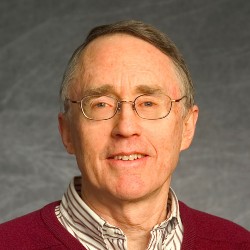
Professor David Pollard is the pre-eminent structural geologist of his generation, and one of the most highly cited. His fundamental contributions over 40 years have shaped our understanding of geological rock mechanics as applied to a host of major questions, such as how sheet intrusions form, how faults propagate, the genesis of rock joints and their distribution and fluid flow in fracture networks.
Currently Emeritus Professor in the Department of Geological Sciences at Stanford University, he began his career at Pomona College before taking a PhD at Stanford and a DIC at Imperial College. He spent the majority of his illustrious career at Stanford.
In his research, he has made a point of advancing the rigorous, quantitative application of mechanical principles to structural geology, and the integration of mechanical principles with careful field observations. The breadth and depth of his contributions represent an outstanding body of scholarly work in some of the most challenging areas of structural geology, and his influence truly pervades the discipline.
An outstanding mentor to his students, he has trained 35 PhD students, many of whom have themselves have become leaders in their fields. With Atilla Aydin, he founded the highly regarded and influential Joint Industry/Academia Consortium, The Rock Fracture Project; a training ground for many researchers who have subsequently gone on to successful careers in both academia and industry. A leader in the structural geology community, he chaired the preparation of the 2003 National Science Foundation Tectonics Program white paper, ‘New Departures in Structural Geology and Tectonics.’
In 2016 he was presented with a Career Contribution Award by the Structure and Tectonics Division of the Geological Society of America. The Wollaston Medal, is presented in recognition of his seminal contributions to geoscience, which have shown how integration of field, laboratory and computer modelling approaches can be best deployed to solve the
hardest problems. It gives me great honour to present you with the Wollaston Medal Prof David Pollard.
Prof David Dierker Pollard replied:
Thank you Mr. President for your very generous citation. And thanks also to those Fellows who offered the nomination, and to the Council whose vote decided the outcome, and to the members of the Society who keep this tradition going. I am deeply honored to have been chosen the 2021 recipient of the Wollaston Medal.
It is something of a tradition for recipients to call out a few names, well known to all, from the list of former medalists. Instead, I would like to call out the names of two medalists, perhaps less well known today, after whom I patterned my career.
William Hopkins, the Medalist in 1850, and Cambridge ‘senior-wrangler maker’, pioneered investigations in what he called Dynamical or Physical Geology, in which geometric laws characterized the geologic structures, and mathematics helped to elevate the science from a level of indeterminate generalities to investigations founded on physical principles, and focused on measurable properties of matter. Quantification, rather than mere verbal description, was the hallmark of Hopkins’ Physical Geology. (Crosbie Smith, 1989)
Grove Karl Gilbert, the Medalist in 1900, and consummate field geologist, asked his horse Billy to carry the Manual of Applied Mechanics by Scottish Engineer William Rankine on expeditions to the Henry Mountains of southern Utah in 1875. There, Gilbert transformed observations of magmatic intrusions of different sizes into a temporal progression of development, and then used the mechanics from Rankine’s manual to understand the physics of the transition from sill to laccolith. (Stephen J. Pyne, 1978)
This is a career achievement award. In my opinion, one’s scientific career is largely measured by publications, so I would be remiss to not acknowledge the students with whom I have been fortunate to share the author line. Each one of them deserves a piece of the Palladium making up the Wollaston Medal. As a tribute to them, and with a clear recognition of their contributions, I accept this medal.